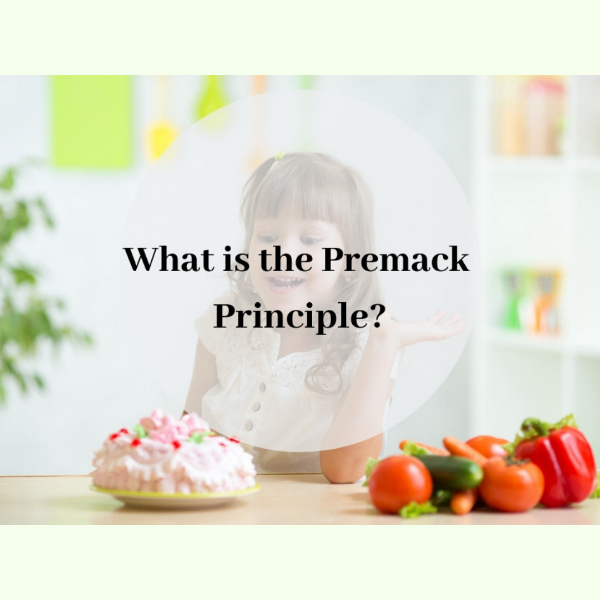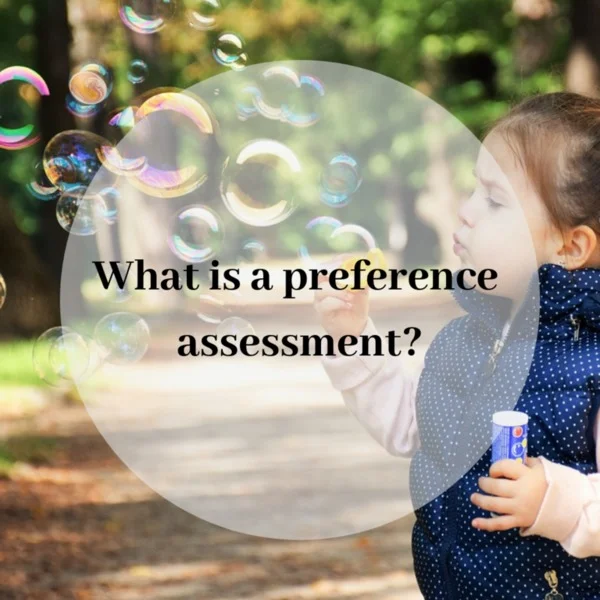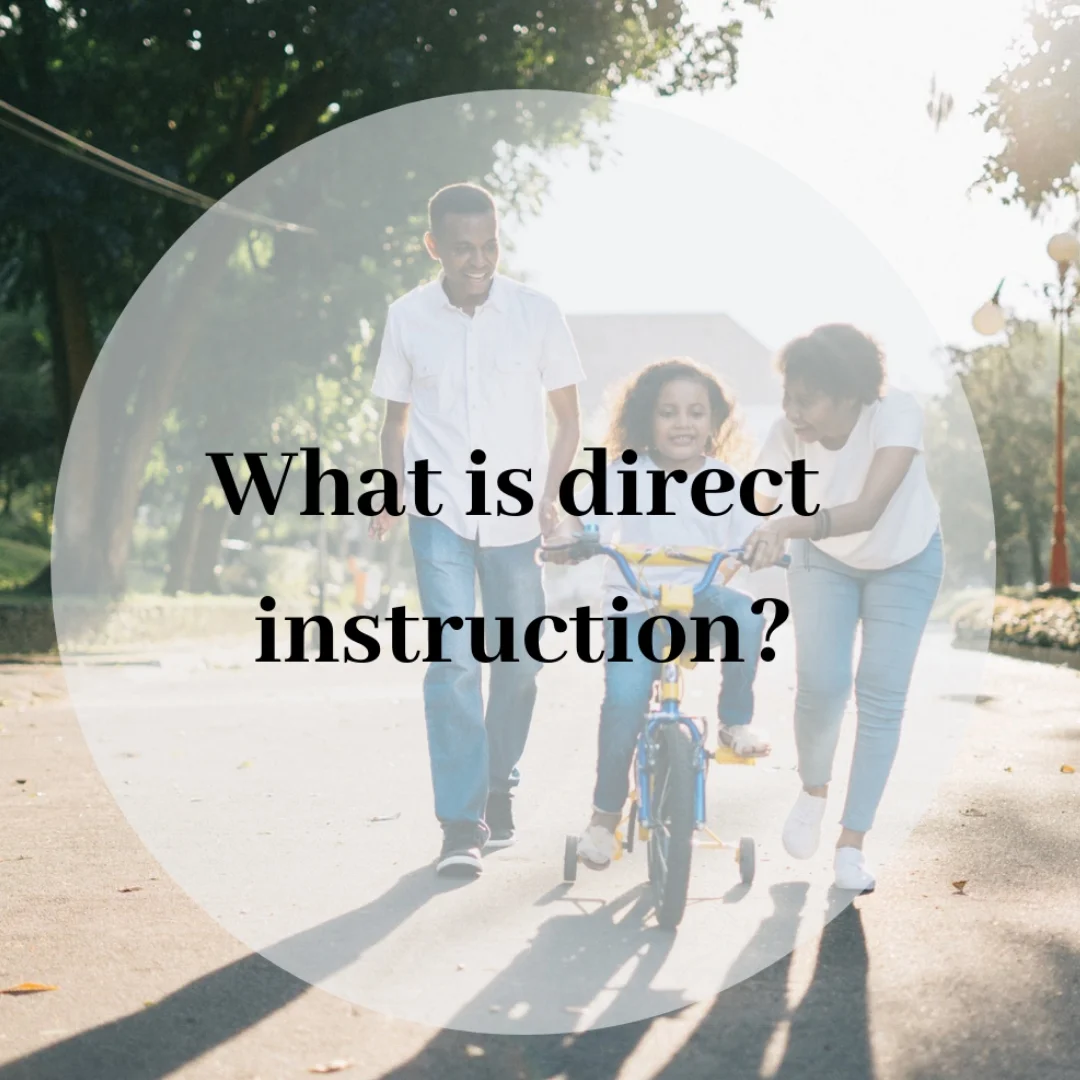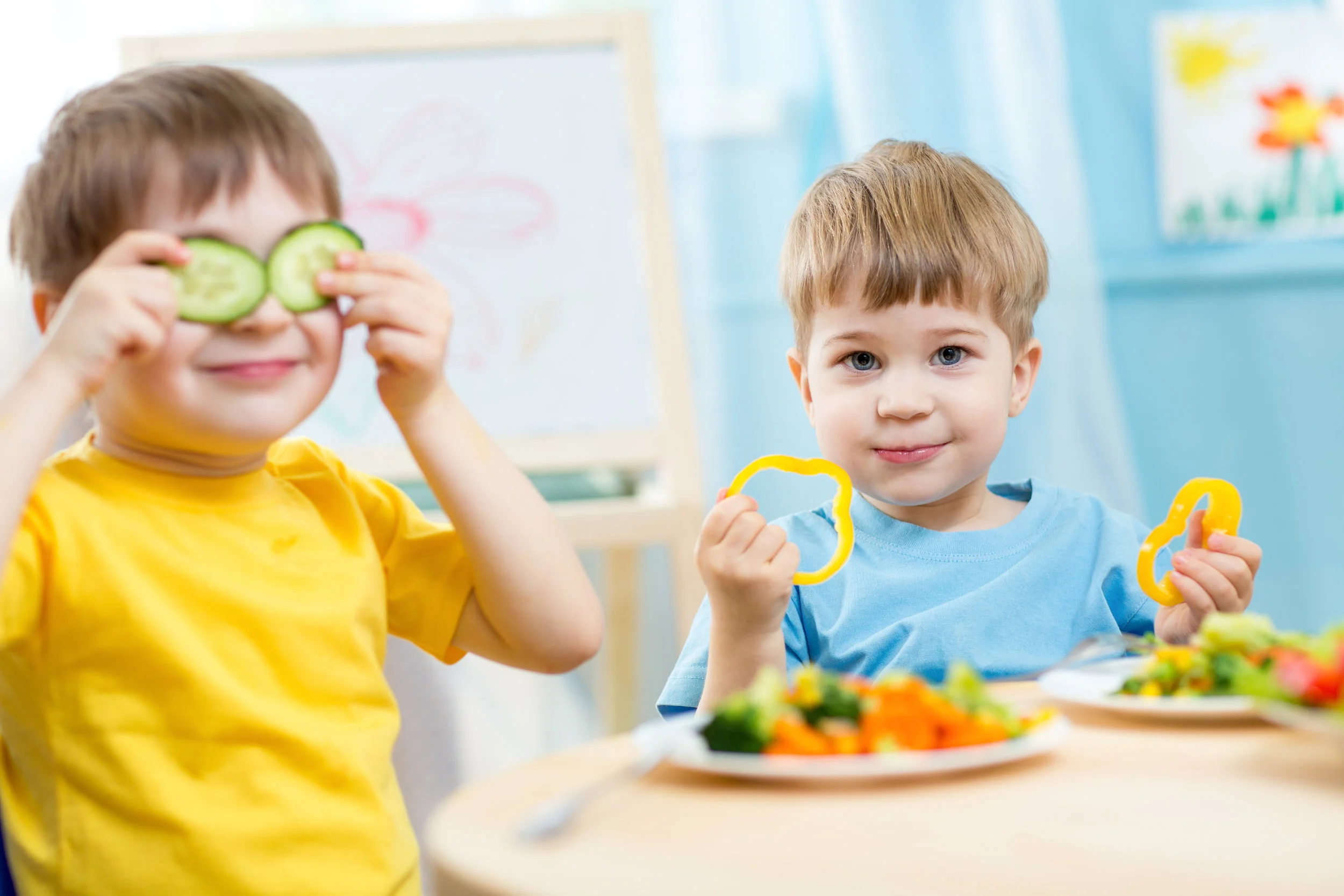Cooperative play is when the child is interested in both the individuals and the activity that they are playing.
Read MoreFor our third installment in our play and learn blog series we are going to talk about sharing and turn-taking!
This week in our play and learn series, we will be talking about expected play skills based on age groups, and what is an appropriate skill level based on each age.
This principle is ideal for learners who are not yet intrinsically motivated or do not understand the greater purposes in completing tasks and non-preferred activities (like eating veggies!).
Preference assessments are assessments used to find potential reinforcers of a learner. These assessments are structured methods that are utilized to help find highly preferred items or actions, that can be used as reinforcers during therapy sessions to keep motivation levels high, when we are teaching clients.
Read MoreA FBA is a Functional Behavior Assessment. A BIP is a Behavior Intervention Plan.
Read MoreThe Direct Instruction method involves scripted teaching to ensure that children receive efficient instruction along with appropriate error correction procedures. Direct Instruction includes a set of teaching principles and a specifically developed curriculum.
Read MoreIncidental Teaching, also known as Natural Environment Teaching is an evidence-based practice of teaching we often use in ABA Therapy. This type of teaching is naturalistic in the fact that we use the natural environment and base the learning opportunities off of what is initiated by the child’s interests at a given point.
Read MoreMy child has autism. Now, what do I do? This is one of the most common questions parents of children with autism ask themselves. This is also a question we hear all the time. Searching for and finding a service provider qualified to provide Applied Behavior Analysis (ABA) services can be an intimidating task.
Common questions and answers about how to get your toddler to try new foods.
Read MoreSiblings often like to copy their brothers and sisters, and picky eating is probably not something you want them to pick up on. So, how do you prevent eating problems from starting in the first place?
Read MoreStarting a feeding intervention with your child is hard work. These 6 tips will help keep those eating problems from resurfacing.
Read MoreOver the past few weeks, you've determined that your child is ready for potty training, prepared, and planned. And now the big day is here! Welcome to Stage 4 of Potty Training: It's Go Time!
Read MoreAn establishing operation is an event that momentarily alters the reinforcing effectiveness of a stimulus. For example, drinking water after eating salty food. The salty food momentarily increased the reinforcing effectiveness of the water.
Read More













